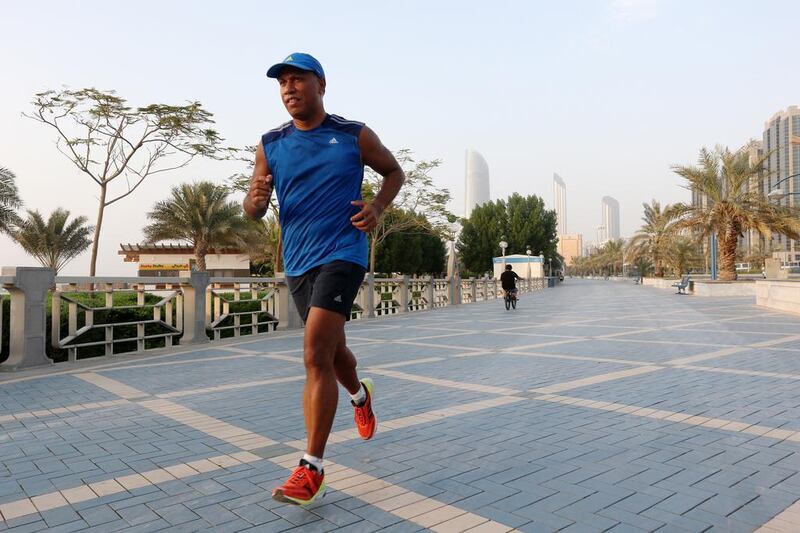Dr Anushi Somaya found out she had transverse colon cancer on the anniversary of her wedding this year. Fear, anxiety and stress are natural responses in such situations, but there was one essential question going through her mind: “Will I allow the disease take over my life?”
The answer, she says, was a resounding “No”.
“I was shattered,” says Somaya, a Dubai-based yoga instructor, who successfully completed chemotherapy sessions earlier this year. “But the first thing I told my mind was: ‘I have to come out of it.’ I reassured my family, too.”
Dr Lissa Rankin, in her book Mind Over Medicine, which made it to the bestsellers list of The New York Times in May, gives a scientifically backed explanation to this: the mind can believe itself well or the mind can think itself sick.
Based on studies of the placebo effect by Harvard professors and published in journals such The New England Journal of Medicine, Rankin makes a case that the body is naturally wired to heal itself and can even eliminate cancer cells and infectious agents that harm.
“There’s proof that you can radically alter your body’s physiology just by changing your mind,” Rankin says in her book. “There’s proof that doctors might facilitate your recovery, not so much by the treatments they prescribe but by the authority you ascribe to them.”
Mind over matter
To start on the route to achieving well-being, you need to squash stress factors, says Rankin.
Physical or emotional stress can cause havoc to the immune function and disruptions in the heart, according to medical experts.
Somaya, who used to practise medicine, is a textbook example of the power of the mind. “Strong determination, willpower and positivity are what steer your through illness,” she believes.
Her mind-body techniques through the trying times of surgery and chemo were yoga and meditation. She even dismissed the doctors’ caution about pain. “I started thinking positive,” Somaya says. “I used creative visualisation techniques to focus on what I really wanted, which was better health.”
Say yes to life
According to Jules Lewis, an Abu Dhabi resident who has led about 50 expeditions in more than 20 countries through her organisation Mountain High, which raises awareness about women’s health issues, physical illness can be triggered by an incident or unfulfilled expectations. “Personal loss, work, fear, resentment and anger affect our health.”
She says people should question what is troubling them and find the best solution to resolve it. “The darkest period of their life can become the brightest opportunity,” she says.
Lewis, who took a group of breast-cancer survivors on an expedition in Antarctica last year, says one needs to find a getaway vehicle. “When you feel off-balance, look around to find ways to cope,” she says.
“For some people, it can be a support group or friends. Others incorporate therapy, like laughter, art, music. There are a lot of relaxation strategies like adventure sports, a walk in the morning or swimming in the ocean.”
Turn to your family
Sarah Avis, a two-time breast cancer survivor who relapsed this year, says she relies a lot on her family.
“My husband and children have been integral to the whole recovery,” says the South African mother-of-three from Ras Al Khaimah.
She first found out that she had cancer in 2003. Months of radiation and chemo, which had her bedridden for a while, did not stop her from joining Lewis’s Antarctica team and taking on a new health plan, with hours of fitness training and an organic diet.
“The 14-day trip had everything from kayaking, mountaineering and camping in the freezing cold. And I made friends who had a similar experience and could still laugh wholeheartedly,” says Avis, who is writing a book to help others in the UAE living with cancer.
“Focus on the things that give you joy; don’t let your illness be on the forefront of your mind all the time.”
Take up new challenges
For the Dubai resident Mark Henaway, the wake-up call came in 2006 when the doctor told him he was at risk for type 2 diabetes.
“I was 38, overweight and not exercising,” says Henaway, who is from Australia. “I knew I had to change my lifestyle.”
He began challenging himself with sports and exercising to lose weight, and trained for a triathlon in 2008.
“I just push myself, find different things to keep me going,” says Henaway, who is readying for a 250-kilometre, seven-day race across the Sahara desert in February to raise awareness about diabetes.
Amanda Gordon, from the UK, lives with osteopenia — low bone-mineral density. The condition was a result of a primary ovarian failure, which caused early menopause when she was a teenager. When she came to the UAE, the 47-year-old professional decided that she did not want to pump her body with drugs anymore.
“They had me on hormone-replacement therapy,” she says. “I had been through hell and back. The hormones were doing things that shouldn’t have been happening. Why was I telling my body to do something that was not natural?”
She asked her doctor for alternatives and decided to take control with exercise. “I have to be careful, but I do not deny myself doing anything,” she says. “I waterski, weight train and take vitamins and calcium. It has not reversed the situation but has slowed it down. And living in the sunshine keeps me happy.”






